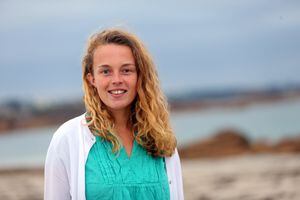‘Belle Greve marine life will be affected’
MARINE LIFE would be affected by development at Belle Greve Bay but by how much is not known.

Hydroport has submitted proposals to the States to develop the east coast, including a tidal barrage across the bay.
Past proposals for reclaiming parts of Belle Greve Bay sparked public protests in the early 1990s and in 2006.
A primary concern then, among others, was the irreversible damage to the marine life in the area.
While Hydroport do not claim that development would come without disruption, it has argued that the tidal nature of the lagoon will allow circulation of nutrients.
They believe that after the four-year development timeframe, marine life would return to normal within two or three years.
Laura Bampton, secretary of La Societe Guernesiaise's marine biology section, said that to say that marine life would return to ‘normal’ after two or three years requires knowing what ‘normal’ is.
‘We need detailed habitat maps and survey data on the species using the area, data that we do not currently have.’
She said it was important to note that maintaining a healthy marine ecosystem is about much more than circulation
of nutrients.
‘We do know that there are a number of important habitats and species in the area, including eelgrass, maerl, and ormers.
‘The dolphins that we’ve become so used to seeing over the last few years also frequently use the area.
‘All of these species would be affected by a development of this spatial and temporal scale.’
Ms Bampton said two or three years was an unrealistically short time frame for the recovery of eelgrass beds, which support a range of commercially important fish species and are an important carbon sink.
‘There is evidence that when habitats like eelgrass are disrupted, it allows fast-growing and hardy invasive species such as Sargassum to dominate the habitat, reducing the chance of the ecosystem ever recovering,’ she said.





